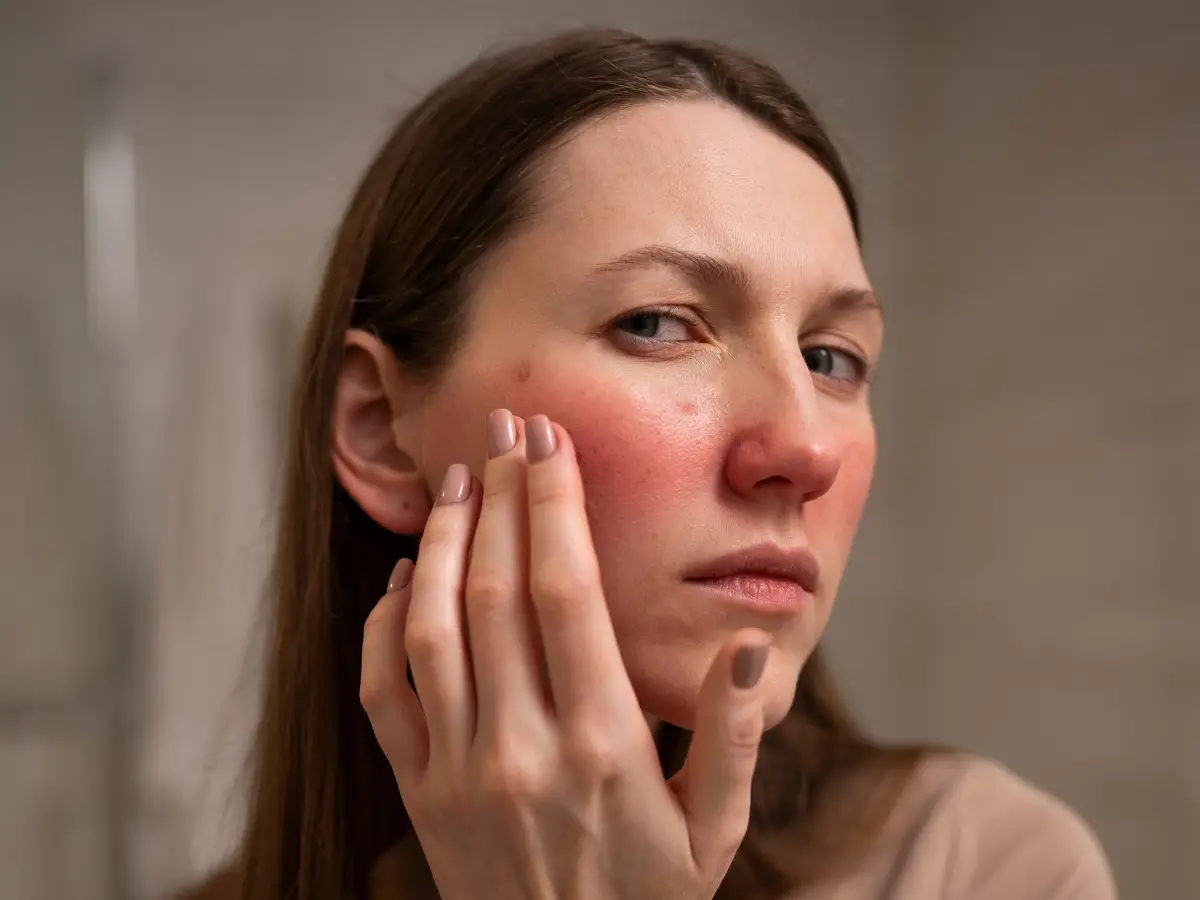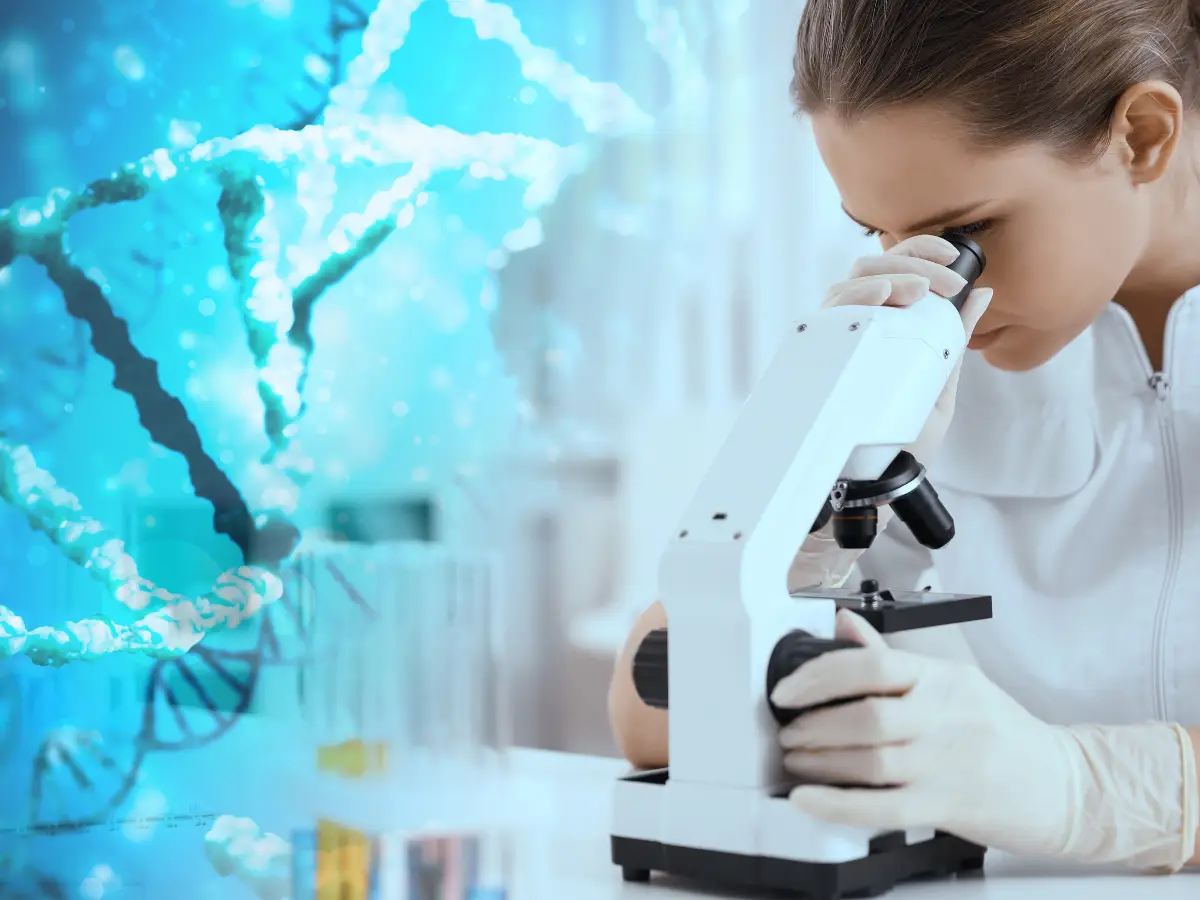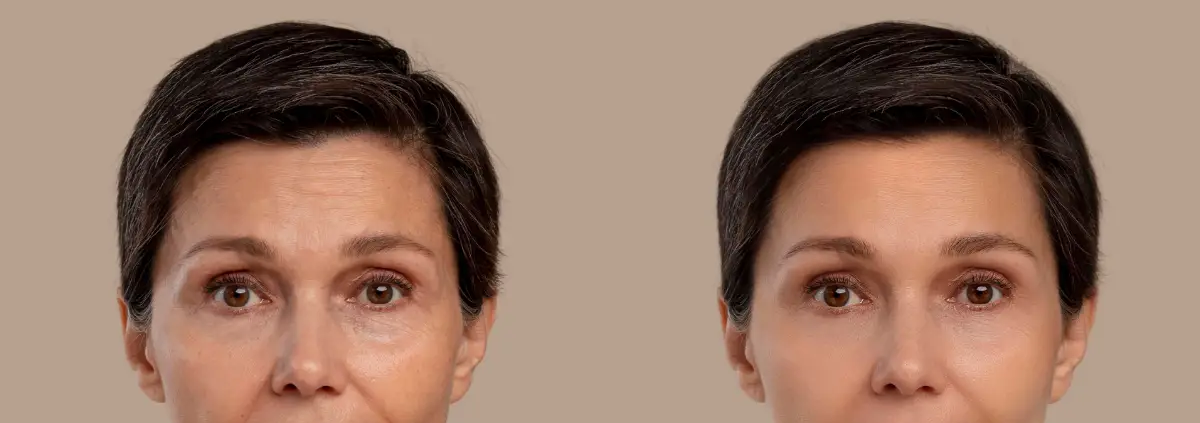Skin Glycation: What It Is, Effects on Skin & Effective Treatments
Skin aging is a concern for many, and understanding the underlying processes can help in addressing it effectively. One such process is skin glycation, a natural phenomenon that accelerates visible signs of aging. Here, we will look into what glycation skin treatment is, its effects on skin health, and how to treat it effectively.
What Is Skin Glycation?
Skin glycation is a natural process that occurs when excess sugar molecules bind to proteins like collagen and elastin in the skin. These proteins are important for maintaining the skin’s structure and elasticity. However, when they interact with sugar, they form harmful compounds known as Advanced Glycation End Products (AGEs). AGEs damage the skin by making these vital fibers stiff and less functional, leading to visible signs of aging such as wrinkles, loss of elasticity, and a dull appearance.
Simply put, glycation affects the skin’s elasticity and suppleness, leading to advanced signs of aging. Therefore, understanding this process is vital to taking preventative measures and maintaining more youthful skin.

How Does Glycation Affect Skin Health?
Glycation significantly impacts skin health in several ways:
- Collagen and Elastin Degradation: Collagen and elastin are the primary proteins that keep our skin firm and flexible. When glycation occurs, it causes these proteins to become rigid, leading to a loss of elasticity. This results in wrinkles and sagging skin, particularly around the eyes and mouth.
- Increased Inflammation: The presence of AGEs in the skin can trigger inflammatory responses. This inflammation further damages skin cells and accelerates the aging process, making the skin look older than it actually is.
- Impaired Skin Repair: Glycation can disrupt the skin’s natural repair mechanisms. As a result, the skin becomes slower to heal from damage, leading to longer-lasting blemishes and a generally unhealthy appearance.
- Appearance of Dark Spots: The accumulation of AGEs can lead to hyperpigmentation, resulting in dark spots and an uneven skin tone. It is another visible sign of aging that many find undesirable.
Common Skin Issues Linked to Glycation
The effects of glycation skin treatment on the skin are often mistaken for the natural aging process. However, recognizing the specific signs of glycation can help in taking targeted action. Some of the most common skin issues linked to glycation include:
- Wrinkles and Fine Lines: These are often the most visible signs of glycation damage. The rigidity of collagen and elastin fibers makes the skin less able to bounce back, leading to permanent lines and wrinkles.
- Loss of Skin Elasticity: As the structural proteins in the skin become damaged, the skin loses its firmness and starts to sag.
- Dullness and Uneven Skin Tone: The skin loses its natural radiance, appearing dull and lifeless. An uneven skin tone often accompanies this due to the formation of dark spots.
- Visible Signs of Aging: Overall, the skin takes on a prematurely aged appearance, with a leathery texture and a loss of youthful vitality.
How Can You Fight Skin Glycation?
While glycation is a natural process, there are several ways to combat its effects on the skin. By making certain lifestyle changes and using specific skincare products, you can reduce the impact of glycation and maintain a more youthful appearance.

1. Genetic Testing and Personalized Treatment
Recent advancements in genetic testing allow you to take personalized skincare test to combat glycation, acne, sun damage, and other skin-related issues. By identifying individual variations in genes related to sugar metabolism and AGE formation, you can determine your susceptibility to glycation damage.
Based on these genetic results, skincare routines can be tailored to target specific glycation concerns. This might include using certain antioxidants, anti-inflammatory agents, or AGE inhibitors best suited to your genetic profile.
Also Read: Personalized Acne Skin Treatment: Based on Your Genetic Profile
2. Dietary Modifications
One of the most effective ways to combat glycation is through dietary changes. Reducing sugar intake is crucial, as high sugar levels are the primary cause of glycation. Focus on a balanced diet rich in antioxidants, which can help neutralize the free radicals generated by glycation.
Antioxidants are found in a variety of fruits and vegetables. They prevent the formation of AGEs and protect the skin’s structural proteins. Foods rich in vitamin C, vitamin E, and other antioxidants should be a staple in your diet.
3. Topical Antioxidants
In addition to dietary antioxidants, topical application can also be beneficial. Skincare products containing antioxidants like vitamin C, vitamin E, and ferulic acid can help protect the skin from glycation damage. These products work by neutralizing the free radicals that contribute to the formation of AGEs.
Look for products that specifically target glycation. Ingredients such as carnosine, alpha-lipoic acid, and pycnogenol are known for their anti-glycation properties. They can be very effective in maintaining skin health.
4. Professional Treatments
If you’re already seeing the effects of glycation on your skin, professional treatments might be necessary. Procedures such as chemical peels, laser treatments, and microdermabrasion can help reduce the appearance of AGEs by removing the top layer of damaged skin. These treatments promote the regeneration of new, healthy skin cells, giving your skin a more youthful appearance.
However, it’s essential to consult with a dermatologist before undergoing any professional treatments. They can recommend the best course of action based on your skin type and the extent of glycation damage.
5. Lifestyle Changes
Simple lifestyle changes can also make a big difference in combating glycation. Protecting your skin from sun damage by using sunscreen is crucial, as UV radiation can accelerate glycation. Managing stress levels is equally important, as chronic stress can increase sugar levels in the blood, leading to more glycation.
Another easy yet effective way to maintain healthy skin is to stay hydrated. Proper hydration helps the skin maintain its elasticity and resilience, reducing the impact of glycation.
Effective Glycation Skin Treatments
To effectively treat skin glycation, it’s essential to use products and treatments that specifically target AGEs. Here are some key strategies:
- Anti-Glycation Ingredients: Use skincare products that contain anti-glycation ingredients like carnosine and alpha-lipoic acid. These ingredients are effective in preventing the formation of AGEs and protecting the skin’s collagen and elastin.
- Topical Antioxidants: Apply products with antioxidants like vitamin C, vitamin E, and ferulic acid. These can neutralize free radicals and prevent further glycation damage.
- Professional Treatments: Consider professional treatments like chemical peels or laser therapy to reduce the appearance of existing AGEs and promote new skin cell growth.
- Dietary Changes: Reduce sugar intake and increase consumption of antioxidant-rich foods. This helps prevent the formation of AGEs from the inside out.
By combining these treatments with a consistent skincare routine and healthy lifestyle choices, you can minimize the effects of glycation and maintain a youthful appearance.
Let’s Recap
Skin glycation is a natural process that can significantly impact the health and appearance of your skin. By understanding how glycation skin treatment works and taking proactive steps to combat it, you can reduce the visible signs of aging and maintain healthier, more youthful skin. Remember, while glycation is a natural part of aging, it can be managed effectively with the right approach.
By leveraging genetics and cutting-edge information technology, GeneHabit offers personalized solutions to help individuals optimize their well-being and achieve their health goals with SkinLife – a personalized skincare DNA test.





